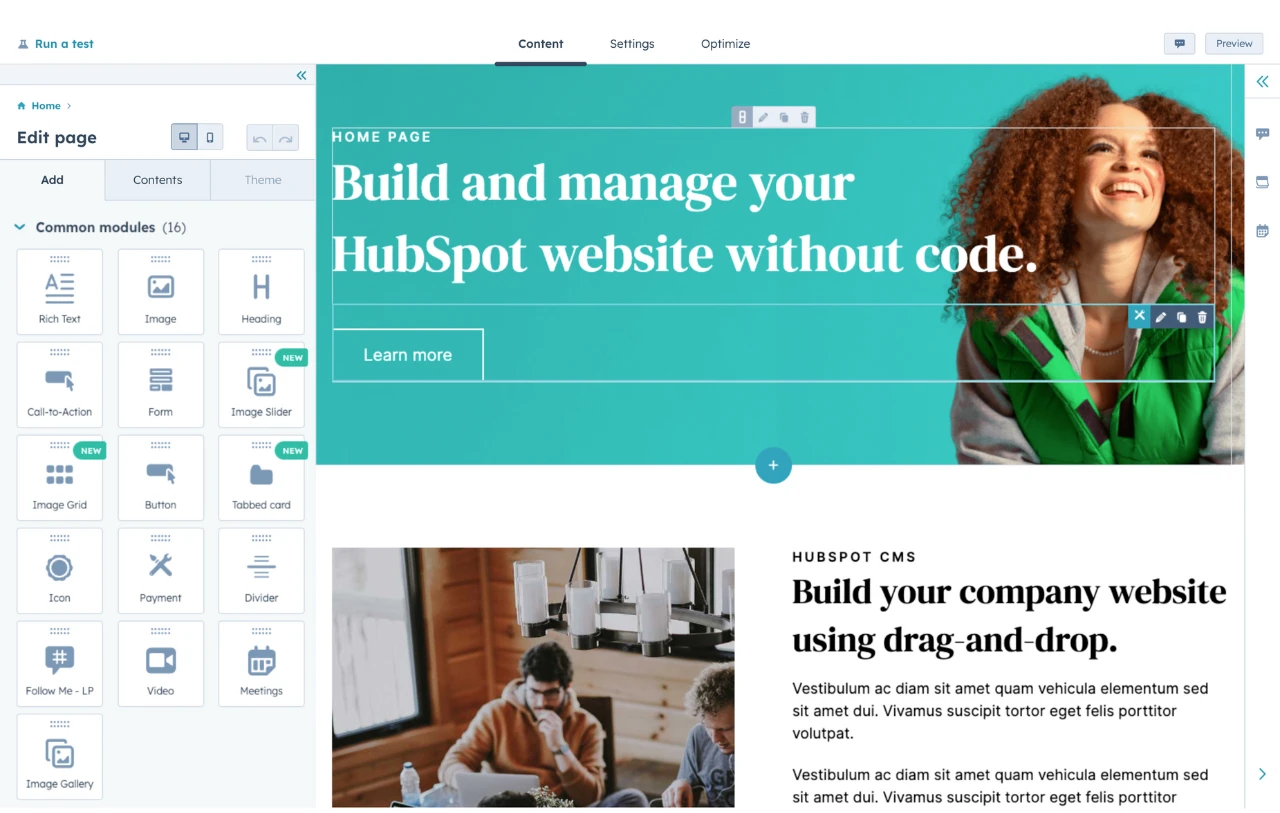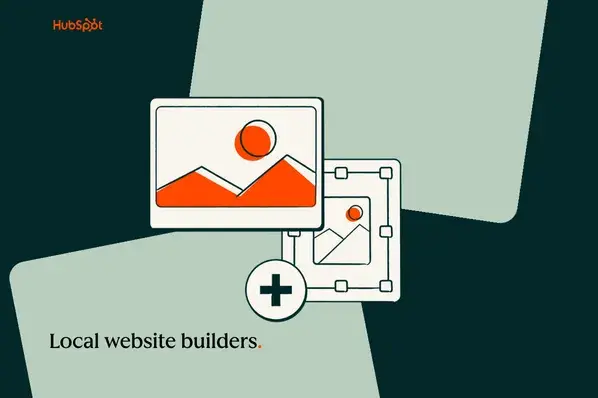The difference is more complicated than you might think, so let’s take a closer look at these two concepts.
What is a webpage?
A webpage is a single document structured with written and visual content, designed to educate the viewers about something specific.
This information is related to the business it represents, but focuses on a specific function or service. For example, a website’s Contact page should only convey information for how to contact the business.
Webpages are designed to structure the information in a way that makes it easier for visitors to browse and find the information they want easily.
For example, let’s imagine a website that is called ezpjays.com, which sells comfy pajamas. Each of its pajama categories can have a separate webpage, such as ezpjays.com/men or ezpjays.com/women.
Let’s look at another example of an “About” page from VurrleStudio. This webpage is designed just to inform its audience about the company and its background. For those looking for a portfolio, or how to contact the company, the website has separate pages to allow a user to reach them directly from the search engine.

Additionally, this type of structured website allows for better search results, as businesses can match the intent of the searcher quite better. Moreover, it allows for a more robust search engine optimization strategy, essential today for any kind of website that wants to rank well on search engines.
What is a website?
A website is a collection of related webpages linked together via a digital domain. Usually, a website's purpose is to educate and inform an audience. At least, that’s what a lot of folks would say if you asked them.
But here’s a follow-up question: Does a website really need a set of different webpages to be considered a website? And if that’s true, then what do we make of the single-page websites that many small businesses are sporting nowadays?
Let’s try a more nuanced definition of “website.” We can also say that a website is a collection of visual and textual content presented on one or more related web pages.
(P.S.: If you want to build a website for free, check out the best free website builders available today.)
Now that we understand what a website is, why is it that some businesses develop lengthy, content-filled websites while others make do with a one-page site for their company?
Single-Page vs. Multi-page Websites: Which should you use?
Many websites tend to break their content down into chunks or separate web pages to better rank for certain keywords on search engines and to make their content more digestible. Still, others opt for a single-page design, especially if they’re light on content.
Let’s do a side-by-side comparison of them both to get a better look at what they offer.
| Single page site | Multi-Page Site |
| all the components of the website are on one webpage | different topics on the website have their own webpages, each with a unique URL (e.g., an about page, product page, contact page, etc.) |
| not as friendly to implement and track extensive SEO strategies due to lack of content and structure | can be more SEO-friendly as it allows you to target for SEO results on each page of the website |
| best for business just starting out and hoping to establish a brand presence with limited content | best for businesses with multiple products or services |
| can be comparatively cost-friendly | can be expensive |
When we talk about businesses like ecommerce stores or services providers, multi-page websites are the norm. On the other hand, restaurants and small brick-and-mortar businesses could do equally well with a single-page website.
However, sometimes the choice isn’t so clear-cut.
Let’s say that there’s a small local deli that specializes in its cold-cut sandwiches. For this business, the simplest types of websites would be the best option. All their site would need is a background of the deli, its menu, store hours, address, and contact details for orders or other queries.
However, if they are a business with a large, established clientele or a longstanding history, then it might be better to start out with a multi-page website like Katz’s Deli in New York City.

It's simple and elegant, yet it structures its content into sections that make it easy for its large volume of customers to look for exactly what they want, easily.
In essence, you need to understand the needs of your business when making this choice. If a single webpage they create fulfills the criteria we mentioned earlier, then why build something more complicated? And if your business needs an elaborate website to do it justice, why would you build anything else?
Adding Webpages to Your Website
Once your business has reached a certain point, it might be time to expand your one-page website into a more elaborate website. And as marketers, you need to ensure that your website is up to the task of implementing newer, more robust content and marketing strategies to establish its new self.
So, how can you identify when it is time to expand or revamp your website with additional webpages? Here are some signs it’s time to expand:
- Your website no longer sufficiently conveys its message Your business may be at a stage where it has established its place within a niche and needs to present more content to showcase your expertise.
- Your website might be known for a specific service, and that may require you to establish additional pages like a reviews page, a portfolio page, etcetera. Creating a separate service page that allows customers desiring that service to find you easily is one good strategy.
- Market research shows that your competitors are using more elaborate website structures, offering a better journey to conversion.
- You are implementing an SEO strategy within your digital marketing plan, or are modifying the existing strategy for a more targeted one. You need more content, and better-structured pieces of content to do that successfully.
Websites and Webpages: Know the difference.
In this article, we discussed the key differences between a webpage and a website, and learned how even a single-page site can be considered a complete website. And while multi-page websites are more common, we also discussed how one-pager websites can do the trick too, if needed.
Web development can be a costly affair, especially if you are just starting out or a small business. But that doesn’t mean that you shouldn't have a website. As a marketer, it’s your job to analyze if and when your business needs a more elaborate site. And if you follow the guidelines above, you will be able to identify the need for a new, more comprehensive website exactly when you need it.
Website Development







![How to make a website with user accounts and profiles [with WordPress, Wix, and more]](https://53.fs1.hubspotusercontent-na1.net/hubfs/53/%5BUse%20(3).webp)
![How to build a Google Site that looks good and drives business [templates & examples]](https://53.fs1.hubspotusercontent-na1.net/hubfs/53/Website%20Redesign%20Terms.png)




